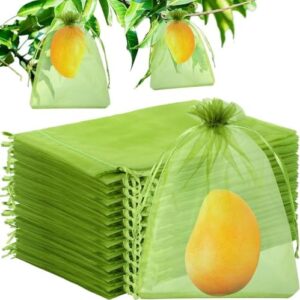There’s nothing quite as satisfying as growing your own fruits and vegetables in your garden. The anticipation of picking that first ripe tomato or crisp cucumber is enough to make any gardener’s heart sing with joy. But sometimes, pesky garden pests can make it difficult to enjoy the fruits of your labor. From aphids and caterpillars to slugs and snails, these creatures can wreak havoc on your plants if left unchecked.
Fortunately, there are a variety of strategies you can employ to combat garden pests and ensure a healthy harvest. By taking a proactive approach and implementing some tried-and-true methods, you can protect your plants and enjoy a bountiful crop all season long.
One of the most important steps in combatting garden pests is to practice good garden hygiene. Keeping your garden clean and free of debris can go a long way in preventing pests from taking up residence in your plants. Remove any dead or decaying plant matter, as these can attract pests and provide them with a cozy hiding spot. Regularly inspect your plants for signs of infestation, such as chewed leaves or yellowing foliage, and take action immediately if you spot any pests.
Another effective way to combat garden pests is to encourage a diverse ecosystem in your garden. By planting a variety of flowers, herbs, and other plants, you can attract beneficial insects that prey on garden pests. Ladybugs, lacewings, and parasitic wasps are just a few examples of beneficial insects that can help keep pest populations in check. In addition, providing shelter and water sources for these insects can help encourage them to stick around and do their job.
In some cases, physical barriers can be an effective way to keep garden pests at bay. For example, placing a layer of mulch around your plants can help deter slugs and snails, as they prefer not to crawl over rough surfaces. Floating row covers can also provide protection from flying insects, such as aphids and cabbage moths, without the need for harmful pesticides. Just be sure to remove the row covers during the day to allow for pollination and proper air circulation.
For those pesky pests that just won’t go away, there are a variety of organic pest control options that can help manage infestations without harming beneficial insects or the environment. Neem oil, for example, is a natural insecticide that is effective against a wide range of garden pests, including aphids, thrips, and mites. Simply mix the oil with water and spray it onto your plants to deter pests and protect your harvest.
Another organic pest control option is diatomaceous earth, a fine powder made from the fossilized remains of diatoms. This powder is abrasive to insects but harmless to humans and animals, making it a safe and effective way to combat pests such as ants, beetles, and earwigs. Simply sprinkle the powder around the base of your plants or on their leaves to create a barrier that pests will avoid.
Of course, sometimes traditional methods just aren’t enough to combat a stubborn pest infestation. In these cases, it may be necessary to bring out the big guns in the form of organic pest control products. Products containing beneficial nematodes, for example, can help control soil-dwelling pests like grubs and caterpillars, while insecticidal soaps can target soft-bodied pests such as aphids and mealybugs.
It’s also important to remember that prevention is key when it comes to combatting garden pests. By practicing crop rotation, using disease-resistant varieties, and promoting healthy soil, you can help prevent pest infestations before they even begin. And don’t forget to keep a close eye on your plants throughout the growing season, as early detection is often the key to successful pest management.
In conclusion, combatting garden pests can be a challenging task, but with the right strategies and a little bit of elbow grease, you can protect your plants and enjoy a healthy harvest all season long. By practicing good garden hygiene, attracting beneficial insects, using physical barriers, and employing organic pest control methods, you can keep your garden free of pests and ensure a bountiful crop of fruits and vegetables. So roll up your sleeves, put on your gardening gloves, and get ready to conquer those pesky pests – your garden will thank you for it!






